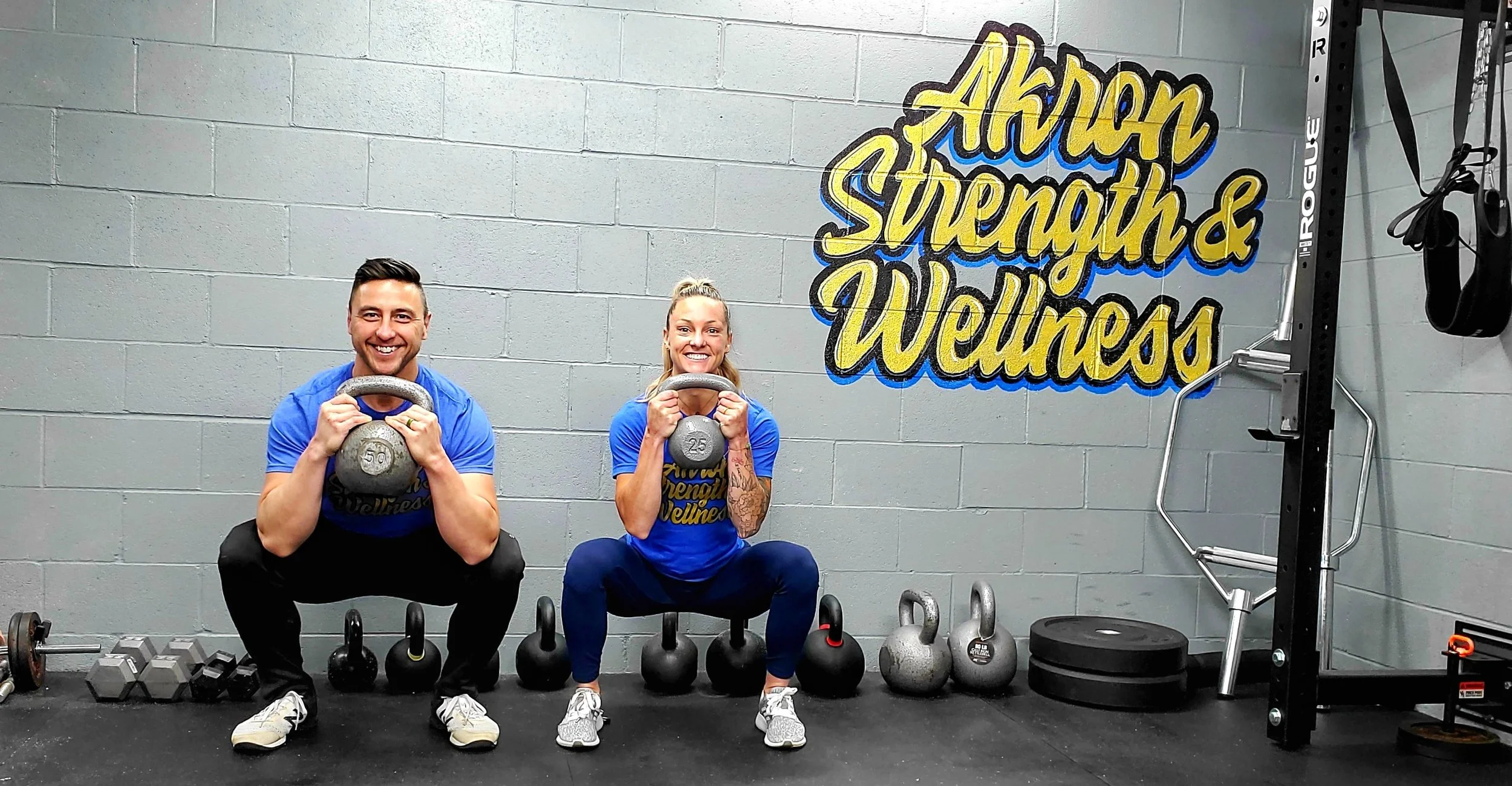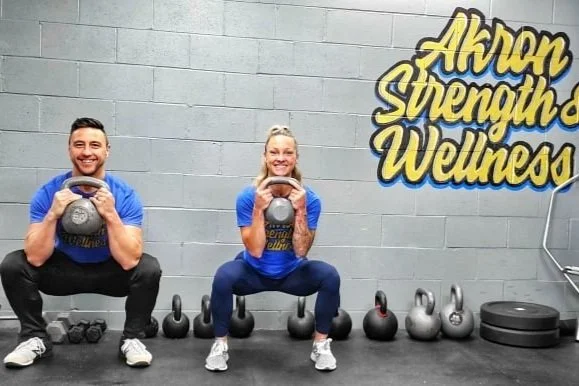Week Two
Raising Awareness & Improving Food Logging
Module 2-A: Intro to Week 2
Module 2-B: Three Ways to Level Up your Food Logging Game

Week Two - Raising awareness & improving your food logging
-
“Most of the time, the task we’re actually facing is a lot simpler than we think it is. The problem is, we usually don’t take the time to really look at it.” -Gary John Bishop
You’ve made it through your first week, how do you feel? When you check-in with yourself at the end of each week or the beginning of the new week, you give yourself a great chance to build motivation by taking stock of the tasks you’ve done well with, while discovering things which still need to be improved.
In this second week, you are going to continue to raise your awareness of your nutrition and habits while improving your food journaling skills. With any new skill, it’s going to take time to become a master.
When someone starts strength training, they usually have a desire to see progress within the first week or two. They may not yet see bulging muscles or those six-pack abs, but may feel accomplished through less soreness than after their first day or feel improved mobility and flexibility from simply moving more.
When it comes to nutrition, making small changes and simply raising awareness to current habits, it can be more difficult to FEEL or SEE the difference RIGHT AWAY. Oftentimes, this will cause people to stop doing the small changes because it can seem useless or unhelpful. If this rings a bell, DO NOT STOP HERE, KEEP GOING!
Awareness is key to lasting change, and lasting change will take time, effort, patience, and constant reminders that this WILL work. This is how human beings learn, grow and make lasting changes - not by drastic measures or crash dieting, but by learning skills and habits slowly and progressively.
In this second week, you are encouraged to continue to raise your awareness to your current nutrition habits and strive to improve your food journaling skill. It is a skill that will improve over time and create a level of awareness that will help you for a lifetime.
A person gets stronger and progresses with the patience to stack up reps over time. This accumulation of volume is the ONLY WAY to master anything.
Each time you journal your meals, snacks, or any food/liquid intake, you are getting stronger and improving.
This week, focus on improving your journaling by using tools to measure for a more accurate log
A Food Scale will help you with a more accurate measure of any food including:
Meats (usually weighed in oz.)
Vegetables (usually weighed in oz. or grams)
Measuring Cups will be helpful to measure common items including:
Yogurt
Liquids (milk, wine, juice, sports drinks)
Cheeses
Nuts
Baking items (flour, sugar, etc.)
Measuring Spoons will be helpful to measure smaller items including:
Oils (avocado, extra virgin olive oil, etc.)
Butter
Coffee creamer
Nut butters (typical serving size is 2 tbsp)
Salad dressings
Sauces (BBQ, syrups, etc.)
With any new skills or habit, there will be a learning curve but keep in mind, there is no failing, only opportunities to learn and improve. You will learn from making mistakes. Let's discuss those common errors so your awareness of them is already turned on.
Common Mistakes with Food Logging:
-Thinking “I know what I’m eating” so I don’t need to track my nutrition." This is a very common thought expressed by people who are resistant to food logging. The truth is our memories are very unreliable when it comes to tracking our intake. We gloss over calorie-rich bites or sips of things here and there. We don’t know the actual size of what is listed as a serving size. And we straight up block out things that we have had because the thought is uncomfortable. This is known as Cognitive Dissonance, or having a perception that is contradictory to the facts because the truth is uncomfortable or misaligned with our beliefs. Being that nutrition is about 90% of the fat loss puzzle, if 2 + 2 is equaling 8, then you are eating/drinking more (probably a lot more) calories than you believe you are.
-Not measuring things, especially the small, calorically-dense stuff. Have you ever measured a tablespoon of Peanut Butter? A standard serving is 2 tablespoons and if I had to wager on it, I would bet that what you think is a serving size is actually more like 2 servings or more. So when someone thinks they are eating 190-calorie, 2 tablespoon serving size, but they are eating a serving that is closer to 400 calories, imagine that being repeated day after day, week after week, with peanut butter and other things such as olive oil, butter, coffee creamer, salad dressing, alcohol, etc.
-Imagine how demoralizing and destructive this can be if you think you are on track, but you are consuming hundreds, even thousands more calories per day or week than you realize.
-Not tracking your weekends. The process of creating awareness means that you are gathering information, ALL of the information, you need to make choices that will progress you to where you want to be. This is where many miss the mark by not logging their weekend nutrition. If you were building your dream house, would you use a blueprint that was only 70% complete? That is what happens when you skip weekend logging.
If one (or all perhaps) rang a bell for you, then work on improving your awareness of that particular area this week. Again, awareness is key to lasting change, which is why the foundational weeks of this program focus on exactly that.
One last thing to send you on your way for a successful Week Two: Have you told yourself how proud you are of your hard work? If not, do that right now. Take stock, compliment your own efforts no matter how small you think they are because there isn't a positive change that can be too small to celebrate. You are doing something that is hard and requires a lot of courage. Keep doing your thing!
The Tasks:
-Invest in a food scale if you don’t already have one. This is one of the best tools you can have to be as accurate as you can with your logging, especially with the all-important lean proteins.
The Tools:
-If you haven’t been already, use the following tools:
The Food Scale to help you with a more accurate measure of any food including:
Meats (usually weighed in oz.)
Vegetables (usually weighed in oz. or grams)
Measuring Cups to measure common items including:
Yogurt
Liquids (milk, wine, juice, sports drinks)
Cheeses
Nuts
Baking items (flour, sugar, etc.)
Measuring Spoons will be helpful to measure smaller items including:
Oils (avocado, extra virgin olive oil, etc.)
Butter
Coffee creamer
Nut butters (typical serving size is 2 tbsp)
Salad dressings
Sauces (BBQ, syrups, etc.)
Questions to answer at the end of Week Two:
-How much of your food intake would you say you logged last week? (your best guesstimate, 80%? 70%? 50%?)
-Regarding the food intake that was NOT logged, what was the reason(s)? (Examples: forgot, unsure of how to log them, didn't want to log them due to shame or guilt?)
-Looking back at the week of logging, where did you struggle with logging? (examples: particular foods due to unknown amounts, meals eaten out at restaurants, etc.)
-On a scale of 1-10 (10 being "I rocked it!" and 1 being "I didn't log 1 thing."): How would you rate your first two weeks of awareness and food logging?


